
by Francine Witte | May 15, 2025 | micro
Tears falling to earth in gulps of rain. No one knows why the moon is crying but everyone’s making a guess. Mr. Blake from the hardware store blames it on the fact that no one buys light bulbs anymore. “Got them LED things that never burn out, and soon,” Mr. Blake says, “no one will know how to change one.” Mrs. Hobson, the neighbor lady no one ever listens to, says “if I had to look at the sorry earth all day I’d cry and cry and never stop,”
The newsman blames the weatherman. The weatherman blames the sky. The sky, the weatherman says, is filled with everything the earth doesn’t want. Clouds and fog and useless dreams.
Everywhere people start to feel bad that they made the moon cry. Except Mr. Blake who is sticking to his light bulb theory. “People like to change the light bulbs,” he says. “Makes them feel important. Like God on that very first day.” Mrs. Hobson tells him “shush, people will hear you,” but Mr. Blake doesn’t listen and goes on saying it anyway. Even when people stop looking at him. Even when they stop buying everything from him.
When everyone runs out of nails and boards, their roofs fall in. They are left staring up at the crying moon. No one wonders anymore why the moon is crying. They just wish it would stop. Great rivers are forming and running into the streets, and no one can leave their houses anymore.
Except Mr. Blake who has built himself a rowboat out of all the nails and lumber nobody wanted. He rows down the street, passes the roofless houses. Past the weatherman standing on a rock and waving his fist at the heavens, past Mrs. Hobson, clinging to a tree branch her mouth a moving gurgle. Everyone waving and waving at him to stop, to help them, but he doesn’t. Calls them all fools underneath his breath. Knows how sorry they will be when the moon stops crying and burns itself out, like any other light bulb, and nobody with any idea how to change it.

by Amil Amin | May 12, 2025 | contest winner, flash fiction
I look down at my phone and it says Baba and I realize I haven’t seen him since that time I was at home on the couch reading and my mom was sitting at the dining table on a chair cracking pine nuts one by one, gently placing them in her mouth and slightly biting down on them as she usually does and he was screaming at the top of his lungs into the air around him, not sure who he was yelling at and who he was throwing furniture at, and now he is calling me with his sad voice, but it also sounded like he didn’t know why he was sad, like he was a bit resentful of his sadness and that I was listening to it without acknowledging it, so he covered the sound with a tender Salaam, bachem trying to perform joy, oh shit, yeah, the Warriors won last night and he is actually happy and I want to vomit because he is a child and the Warriors are fake anyways because they are stacked just because KD, who is a child too, wants a ring.
My mind gets foggy as I fight the urge to ask him how he is, but he continues to talk and asks me how my shift was as if I want to tell him, as if I want to talk to him at all, as if he wasn’t sleeping every night on the couch of his older widowed sister’s apartment whose walls are strewn with faded black and white pictures of dead people that are buried in mass graves in a land that I have never visited nor, I think, I even care to visit because my dad is a child and I don’t want to visit a land that raises children like him that sleep on the couch and rely on sports teams for their happiness, so I just say Okay, it was busy and suddenly I feel guilty that I even answered the phone call, that I betrayed my mom’s struggle against the patriarchy even though she wouldn’t even call it that, wouldn’t even be mad that I answered the phone, would tell me it is my duty to talk to him and would use that word, duty, and suddenly I noticed I wasn’t breathing and at the same time heard my dad take a deep breath in from his vape pen, using it to inhale the words he wanted to speak to me, thinking it was a literal pen that could write his words in the air, words that may not have been his, maybe belonged to the air, the air around us that might be occupied by the ghosts of our ancestors that are buried in mass graves and were now hovering around us all the time and somehow determined all of our decisions without us even knowing or understanding.
I am getting married, I am having a child.
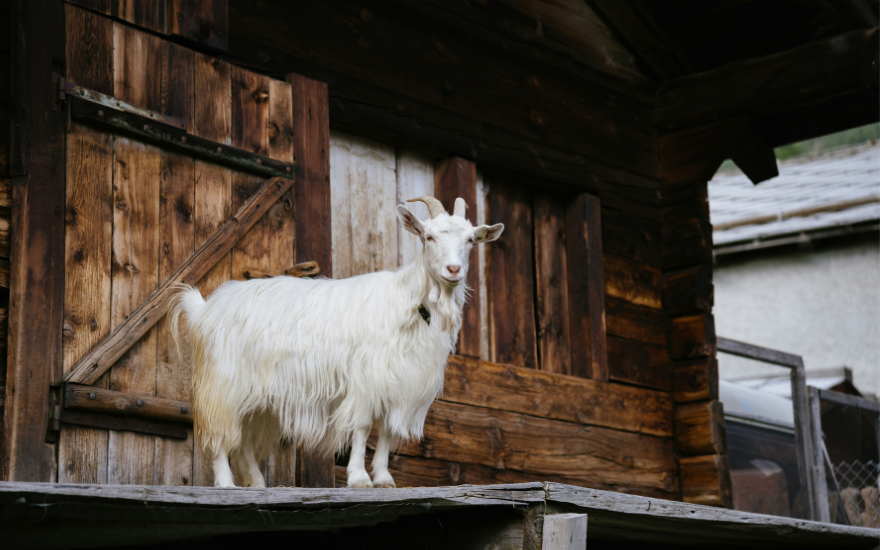
by Fractured Lit | May 8, 2025 | flash fiction
“You’re dead to me,” Cas says when I dart back inside the house and catch her dancing through the living room in her red string bikini. Cinnamon scents the room as she waitresses a plate of oatmeal cookies—hot, no raisins—and rotates for her boyfriend Earl, bending forward, making his Adam’s apple bobble.
I was supposed to be getting lost for two hours, but now I want to call Mom about the weird game Cas is playing, and I want to yell at Earl to get out of Dad’s chair, and I want to scream how stupid Cas looks in a bikini holding cookies, but I can’t because there’s a baby goat on the roof.
I shout and shout about the goat until they follow me into the yard and watch it sproing to the tip of the pitch and down again. Its little hooves tap-dance along, frolicking on the dull gray shingles.
We can’t figure how it got up or how it’ll get down, so Earl drags Dad’s rusted ladder from the shed, and climbs up, clomping after the goat in his clunky black boots. The baby goat squeaks like a dog toy then full on laughs, a weird ba-ha-ha sound. Earl chases it round and round, but each time the goat side-hops away, slipping just out of reach.
“Stop playing hero and come back inside,” Cas begs him.
Earl’s eyes swivel, his attention caught between the baby goat and Cas’ red strings, the ones she says he can untie with his teeth if he follows her back inside this second.
“Playing hero?” Earl says, “I’m only kidding around.” He raises one brow, waiting for Cas to get the joke. She rolls her eyes, but I full-on snort. Kidding.
It makes me miss Dad and his dumb jokes. Even though Mom says we don’t need another man around, I don’t think she means Earl, with his lopsided hair and big milky teeth. Earl, who’s still more boy than man with that gulping gaze he gets whenever he sees even an inch of Cas’ skin.
Today, she’s showing miles. Cas moves and Earl wobbles. She bends low, and he nearly busts through the rain gutter. All the while, the baby goat laughs and laughs, darting back and forth, and I don’t know why Cas refuses to help. It would be good practice for chasing her own someday kids, but she only huffs and flops on a deck lounger, readjusts herself so her butt plumps into the air.
Cas whiffs of cocoa butter, and I know for a fact she hates the knobs of her kneecaps, hates that Mom says sunning will make her as leathered as an elephant’s ear, hates me and not just for being underfoot when Earl is over.
I add baby goats to the mental list of things Cas hates, while the goat skips in a figure-eight pattern and Earl scrambles after it, like a dancer on TV, but clumsier. The baby goat looks so happy, and Earl looks happy too.
He waves his cap at the goat and shouts, “Hey!”He whistles and begs Cas to come up, but she ignores him, so I snake up the ladder instead.
On the last rung, Earl takes my hand and I imagine how soft the goat must feel. Its heart pounding. The smooth velvet nubs of its horns coming in.
Earl and I go after the baby goat together. It whips by me and I lose my balance, but Earl swoops me up and holds me steady. We come up with strategies—one chasing, the other catching—and try different snicking sounds, but nothing works. Earl suggests we try trapping the goat in a sheet and I picture limbs punching out, like how Cas’ belly will look if she keeps trying to do it with Earl.
Cas has a woman’s body already. She flops onto her back, cocoa butter slicked, the lines from the lounger leaving white grill marks on her pink pork chop skin. It reminds me we’re getting burned too.
I palm my hot nose and Earl plops his cap on my head while the baby goat nibbles at the edge of the gutter. He chomps on a loose shingle, then chews at the coil of Christmas lights Dad put up years ago. The ones we never took down. The ones with a broken bulb that Mom keeps saying we can replace, and it will all light up again. But we never do.
As we tromp around after the goat, I have half a mind to ask Earl if he’s any good at replacing bulbs or if he plans on sticking around after he’s done sticking it to my sister, but I’m already imagining he will. The same way I imagine Dad will come back and Cas will get nice and Mom will get happy, the way I pray for something to lift us so we’ll all be whole again.
I whisper-think my prayers to the sun, to the pork chop lines on Cas’ legs, to the soft hairs on Earl’s arms. To the baby goat, sproinging again so high it’s practically flying.
Earl sits down to catch his breath and I join him on the hot shingles, marveling at how far you can see from the housetop—dirt puffing up in far-off fields and the hazy mountains beyond—and here on the roof, the warm animal smell of the goat, the musk of our sweat, and cinnamon swirled with Cas’ suntan lotion as she carries the oatmeal cookies up the ladder and joins us. She sets the plate in her lap, laces fingers with Earl and beckons the baby goat with her free hand. It eases toward her, shyly at first then all at once, nuzzling, the same way I would to Cas or Earl, to anyone who’d let me.

by Fractured Lit | May 6, 2025 | news
If these titles are any indication, then you can see how hard it has been getting down to a longlist of 67 flash and micofictions! We can’t wait to get our shortlist of 40 to judge, Tara Isabel Zambrano! We’re furiously reading!
- Wife 2.0
- Veterans
- Theater of the Real
- No Soap
- Nothing But Crumbs
- Family Lies and a Truth
- After the Rocket
- Numerology
- Abraham Ritter: March 7, 1949—
- Christmas Cornhole Chili
- Isopentyl acetate
- Jigsaw
- Christina
- Bird Lizard: A Love Story
- To Love an Unlovable Thing
- Lightyears Away
- Let’s Take This Offline
- One Day in December, My Trapezius Decided to Write a Short Epic Poem
- Nest
- Duende
- Blossoming
- Before The Everything After
- Creature Dreams
- Assisted Living: Becca Revises the First Draft
- viz
- The Dybbuk
- Dog Years
- Sister Sister
- Confessions of a serial mosquito-killer pretending to be a poet
- Scintilla River
- Going Nowhere
- Ripe
- Choose Your Own
- Good Dog
- Don’t Be Afraid of Teeth
- Another Friday
- Weed
- Rock Dove
- Burn
- New You Wig Emporium
- Last Things
- Close and Far Away
- Rut
- She should be walking by now
- Drunk at the bacchanal you realize you’re a platonic form trapped in these words
- Blackberry Pie
- a string is a fate is a serpent is a string
- Sick Day
- Some of Us Notice the Berries
- Miss Tafia, Her Snakes and Her People
- The Picture
- An Alien World
- The Verizon Guy
- Kintsugi
- Big Top
- Martin’s Reality
- The Bride Is Eating Cake and the DJ Is Playing Werewolves of London
- Angles of Light
- Birds
- Richter Scale for Heartbreak
- Two Years After
- Shaded Desire
- Empty Bottle
- Percussion of Empty Rooms
- Didn’t We Realize We Were Drowning?
- Hands
- By the Sea, By the Sea, By the Beautiful Sea
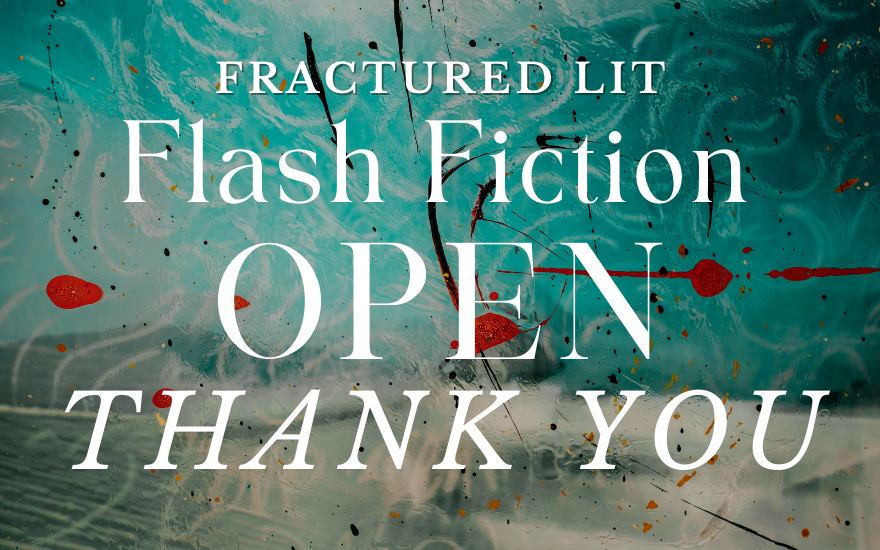
by Fractured Lit | May 5, 2025 | calendar, contests

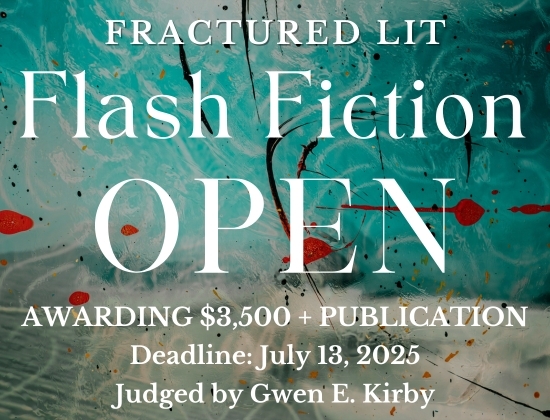
judged by Gwen Kirby
May 11, 2025, to July 13, 2025 (Closed)
This contest is now closed. Thank you to everyone who submitted! We’re excited to read your stories!
Our submitters know a good opportunity when they see it, so we’re excited to once again host the Fractured Lit Flash Fiction OPEN from May 11 to July 13, 2025.
What we love about this contest is that there are no themes or restrictions on style. We want your most innovative and resonant flash and microfictions. Send us those pieces that lift us up, that take us down, that make us feel alive. Write that story you have been obsessing over, that has you by the throat or the heart, that needs to find its readers. We love stories that reveal their characters in unique and soulful ways, that put us into the middle of the action, that make us feel something more than our usual realities. Take us through realism, fabulism, and everything in-between.
Fractured Lit publishes flash fiction with emotional resonance, with characters who come to life through their actions and responses to the world around them. We’re searching for flash that investigates the mysteries of being human, with the sorrow, and the joy, of connecting to a diverse population.
We’re thrilled to partner with Guest Judge Gwen E. Kirby, who will choose one grand-prize winner and fifteen finalists from a shortlist of forty stories curated by our editors. The first-place winner will receive $2,000 and publication, while the fifteen finalists will receive $100 and publication. All entries will be considered for general publication.
Good luck and happy writing.
Gwen E. Kirby is the author of the collection Shit Cassandra Saw. Her stories appear in One Story, Tin House, Guernica, Mississippi Review, SmokeLong Quarterly, and elsewhere. Guest editor Aimee Bender selected her story “Shit Cassandra Saw But Didn’t Tell the Trojans Because at That Point Fuck Them Anyway” for Best Small Fictions 2018. It also appeared in the Wigleaf Top 50 and was anthologized in Flash Fiction America from Norton. She has an MFA from Johns Hopkins, a PhD from the University of Cincinnati, and teaches creative writing and literature at Carleton College.
Here’s what Gwen looks for in a flash fiction story:
My favorite thing to find in a story is the thing I am not expecting, and I think it’s doubly true with flash! I love to read a flash story and think, wow, that could only be pulled off in 1,000 words. That conceit, that voice, that moment, it’s too big and wild and bright to last a moment longer, it had to come to life on flash’s knife’s edge. So I am looking for stories that surprise me and that use the form to its limits and to its strengths.
guidelines
- Your $20 reading fee allows up to two stories of 1,000 words or fewer each per entry-if submitting two stories, please put them both in a SINGLE document.
- Writers from historically marginalized groups may submit for free (we have met our cap, so now closed) until we reach a cap of 25 submissions in this category. No additional fee waivers will be granted for this contest.
- We allow multiple submissions-each set of two flash/micro stories requires a separate submission accompanied by a reading fee.
- Please send flash and microfiction only-1,000 word count maximum per story.
- We only consider unpublished work for contests-we do not review reprints, including self-published work (even on blogs and social media). Reprints will be automatically disqualified.
- Simultaneous submissions are okay-please notify us and withdraw your entry if you find another home for your writing.
- All entries will also be considered for publication in Fractured Lit.
- Double-space your submission and use Times New Roman 12 (or larger if needed).
- Please include a brief cover letter with your publication history (if applicable). In the cover letter, please include content warnings as well, to safeguard our reading staff.
- We only read work in English, though some code-switching/meshing is warmly welcomed.
- We do not read anonymous submissions. However, shortlisted stories are sent anonymously to the judge.
- Unless specifically requested, we do not accept AI-generated work. For this contest, AI-generated work will be automatically disqualified.
Some Submittable Hot Tips:
- Please be sure to whitelist/add this address to your contacts, so notifications do not get filtered as spam/junk: notifications@email.submittable.com.
- If you realize you sent the wrong version of your piece: It happens. Please DO NOT withdraw the piece and resubmit. Submittable collects a nonrefundable fee each time. Please DO message us from within the submission to request that we open the entry for editing, which will allow you to fix everything from typos in your cover letter to uploading a new draft. The only time we will not allow a change is if the piece is already under review by a reader.
OPTIONAL EDITORIAL FEEDBACK:
You may choose to receive editorial feedback on your piece. In your cover letter, please let us know which piece you’d like your editor to focus their review on. We will provide a two-page global letter discussing the strengths of the writing and the recommended focus for revision. Our aim is to make our comments actionable and encouraging. These letters are written by editors and staff readers of Fractured Lit. Should your story win, no feedback will be offered, and your fee will be refunded.
submit
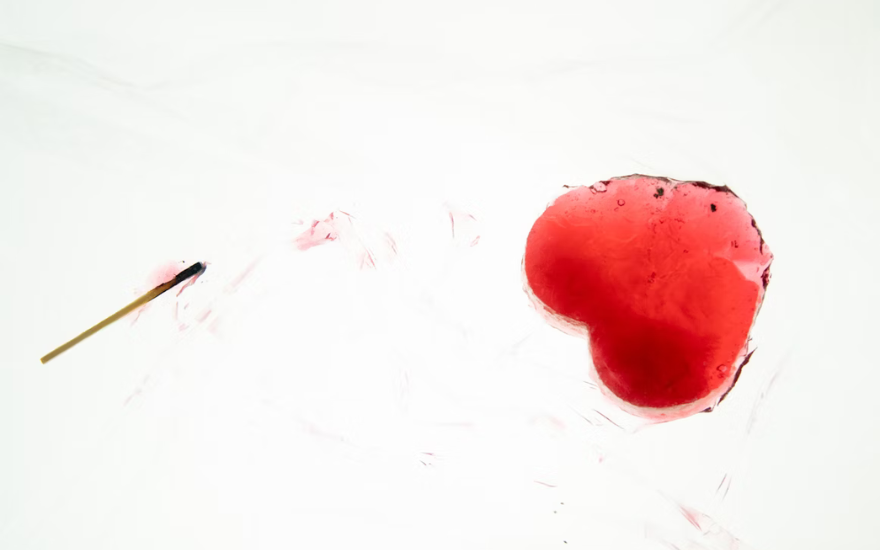
by Fractured Lit | May 5, 2025 | micro
and I don’t say anything as you drop each strand on the ground and I wonder are you okay do you need help is that good for you as I see patches spread across your head and I know that it’s not good for you, but it must be if you are still doing it even after everyone points it out to you, our other friends, omg that’s so disgusting, your boyfriend, maybe you should see a doctor, your mother, how can you do that to your beautiful hair, and I want to tell you stop, but it’s not my place to say anything because I know what hurting yourself means and how it feels as I dig my nails into my legs, my arms, in hidden places to shut out the you are never going to be anything from my father, you are ugly and no one will marry you from my older sister, you are a waste of space from my mother, and I sit in my own silence knowing that these external parts of ourselves are not the only things that are hurting.

by Mario Aliberto III | May 1, 2025 | flash fiction
Willow doesn’t even get the satisfaction of saying Brandon broke up with her. They were never a couple, not officially, their relationship undefined after six months of perfunctory orgasm-less sex (for her at least). Her friends constantly pointed out she was way more into him than he was into her, all of which became obvious when Brandon ended things by saying “we should just chill for a while,”
so…
Willow calls in sick to her shift at the bank
unwraps mini-Twix
scrolls Netflix for The Vampire Diaries
wanting nothing more than to lose herself in fangs and Damon Salvatore’s blue eyes
but
The Vampire Diaries isn’t on Netflix anymore
it’s on HBO Max
fuck you Netflix
there are too many streaming services
and
whatever service Willow subscribes to never has anything good on, so the only rerun she gets is replaying the final argument she had with Brandon when she told him she wasn’t ready to get on a plane to Japan with him on the dream vacation she’s talked about her entire life
too many coughing people packed together in a metal tube
too much turbulence
crashing of course
into the ocean
sharks
all issues dealing with her anxiety she talked with Brandon about openly, and how crazy is it Brandon knows her better than anybody, which is why she thinks she loves him, and yet he still doesn’t give a shit about her, and if he can’t love her, then no one will, because seriously, he’s not even that fucking great
“finding himself” after getting fired from another parking valet gig
his absolutely ridiculous handlebar mustache
how rude he is to cashiers, waitresses, people walking dogs
which only makes it worse, how lame she must be for a loser like him to break up with her, and she’ll gladly stay in bed, Twix chocolate and caramel congealing on her tongue, miserable, alone, except her friends are concerned, and they text about painting and wine at the local art studio, and Willow’s depression is hijacked by her social anxiety, and she texts her friends hinting she can’t make it, but her friends refuse to abandon her, and they show up to drag her out of her apartment the same way they used to drag her out of the library to frat parties in their college days, and she relents, cleaning the Twix off her teeth, putting a bra on, melting into sympathetic hugs, and the whole drive over to the art studio her friends confess how much they despise Brandon, how he’s a fuckboy, how she deserves better, and Willow confesses
she’s too boring
scared of everything
owns a passport she’ll never use
the same things Brandon said to her when she backed out of going to Japan, and her friends remind her of all the times she was anything but boring, nearly peeing themselves reminiscing about the time Willow skinny-dipped in College Square fountain, and Willow relaxes a bit after her first glass of Merlot,
paintbrush in hand
meticulously stroking brown paint into the shape of a tree
sponging faint pink for cherry blossoms
which the instructor explains are currently blooming in Japan, and Willow could go see them, she could, she swears one day she will, and although her painting holds no resemblance to the instructor’s, she loves it, and afterwards she carries her painting into a tattoo shop a few blocks away, and her friends take turns holding her hand as a copy of her cherry blossom tree is inked onto her ankle like a promise, and at the end of the night she stumbles giddily into her apartment, and she sees a text from Brandon asking if he can come over, eggplant and purple devil face emojis, and she says yes because she drank four glasses of wine and shouldn’t be trusted with her phone, her cheeks and heart and body flush, and when Brandon knocks on the door
she opens it
he leans in the door frame
smirking beneath his shitty mustache
like he expected this, her giving in to him
like he’s the only excitement in her life
and she cringes at the thought of that mustache touching her
so before she slams the door in his face, she tells him they are officially done, then texts her friends, asks who’s up for an adventure, takes another look at that beautiful tattoo on her ankle, thinks of Japan, the smell of cherry blossoms everywhere.

by Brecht De Poortere | Apr 28, 2025 | flash fiction
My daughter, Chiara, turns five today. I get up when it’s still dark because, if I wait until after the Tuscan sun rises, it will be too hot to bake a cake. I pour myself cold coffee, then I close the windows and shutters to trap the fresh night air in the house. In the thumbed recipe book handed down for generations, I look up grandma’s instructions for a sponge cake. Quality butter, she had said, is the secret to a good cake. But our Maremmana cow died long ago, when the grass turned brown and dry. Now, I make butter from our scraggly goat’s milk instead. Our chickens have stopped laying eggs, so aquafaba will have to do. And I use flour from sorghum, not wheat—a plant tougher and more resistant to these arid climes.
Chiara wakes from the clinking of the whisk against the glass bowl. I kiss her soft cheeks, flushed already, and we both step outside, where we moved the oven to keep the house cool. The sun, red and fiery, peeks over the hills, announcing another scorching day. Soon, the crows will seek shelter, fleeing from the heat. Chiara runs off into what used to be the vineyard, her pigtails bronze in the light of dawn. The lush plants have long lost their leaves and the branches stick out of the ground like gnarled zombie hands. Chiara will never know the weight of their fruit, the juice squeezing between your toes as you squash the grapes with your feet to make wine. She will never know the meaning of the songs we sing—the joys of harvest they were meant to carry. “Chiara,” I call when the cake is ready and the sun too hot to stay outside. The searing wind sweeps up the dust as we shut the door behind us.
In the cool, dark kitchen, I reach for the terracotta jar on the top shelf. I lift the lid, tilt the jar, and carefully shake out five hard raisins into my palm—one for each year of Chiara’s life. If only these were raisins from our own farm. But they’ve come by sailboat, all the way from Scandinavia—the only place where grapes still grow. They cost an arm and a leg, so I keep them for special occasions. I place the raisins carefully on top of the cake, for Chiara to pick them off again with her delicate, little fingers and pop them between her smiling lips, one by one. “Mmm,” she says, “I love raisins, Mamma.” Then she throws her arms around me in a tight hug, and I think to myself, If only you knew, my love, raisins don’t taste anything like grapes.
*Originally published in Reflex Press
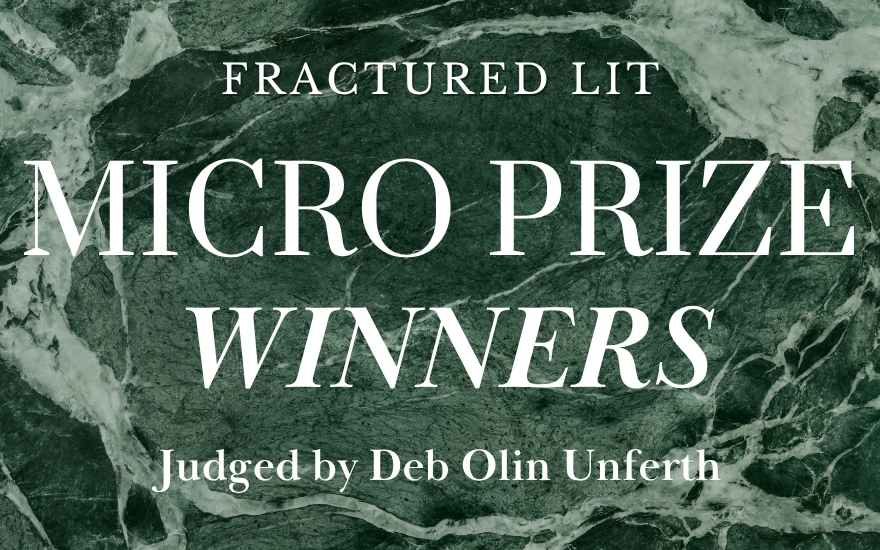
by Fractured Lit | Apr 24, 2025 | news
We’re excited to announce the three winners chosen by Judge Deb Olin Unferth!
1. Our Father by Theresa Sylvester
“This is an astonishing story, revealing so much about the father in a few words, the complexity of his relationships with his children and the women who bore them. We come to realize this father was mostly absent, and they are mourning for something that was always only half there, and yet we love him as they loved him. We love his style, his smile, his flashy car. He is so singular, his personality leaps off the page. And ending with a lullaby from another world is masterful, heart-breaking, lyrical, brave. This is the work of an accomplished writer.” ~DOU
2. Secret to Marriage by Laura Sciortino
“I love how original and weird this piece is, and how sensitively it captures the quiet sadness of a husband who must watch his wife grow literally out of his reach. Something I learned rather late in life is that marriage is an ongoing project of each letting the other grow, even if it means growing in a way the other doesn’t understand, even if it means growing in a way the other can’t share, and yet still loving that person, still staying by their side. I’m deeply impressed that the writer chose surrealism to express this truth. The story is funny, sad, full of longing.” ~DOU
3. I Come from Aliens by Janet Fancher
“This piece wrecked me. This portrayal of dementia, this accounting of loss, is so quiet, observant, and loving. My favorite part is the ending: the two, the father and the narrator, miming a game played so many times, so long ago, that even across so much psychic space, they both know exactly what to do. I’ve always suspected that we connect more with our bodies and movements than we do with words. Father and child throwing a ball back and forth in the backyard. Ancient wires reconnecting, primal energies rising, traditional bonding remembered instinctually. Really beautiful.” ~DOU
Also Publishing:
Neighborhood by Linda Shapiro and One Night, the Moon Starts Crying by Francine Witte
Shortlist:
- Runaway by Shauna Andrews
- Dad Never Gave Me a Rabbit’s Foot by B. Bilby Garton
- Fifteen Shades of Pink by Christine H. Chen
- To Play the Blues by Maxine Davies
- I Come From Aliens by Janet Fancher
- A woman makes a cardboard train by Jay McKenzie
- Protoplanet by Fleming Meeks
- Your Funeral Was Lovely by Natalie Nee
- Like Broken Glass by Madeline Rosales
- Car Crashes by Steve Saulsbury
- A Hawk Brings a Message by Dominic Scicchitano
- Secret to Marriage by Laura Sciortino
- Baby by Sarah Seidel
- Neighborhood by Linda Shapiro
- The Last Apricot by Vaneeza Sohail
- Our Father by Theresa Sylvester
- One Night, The Moon Starts Crying by Francine Witte
- Dated by Michelle Xu
- Small Golden Squares by Mizuki Yamamoto
- Boy and Balut by Mingwei Yeoh
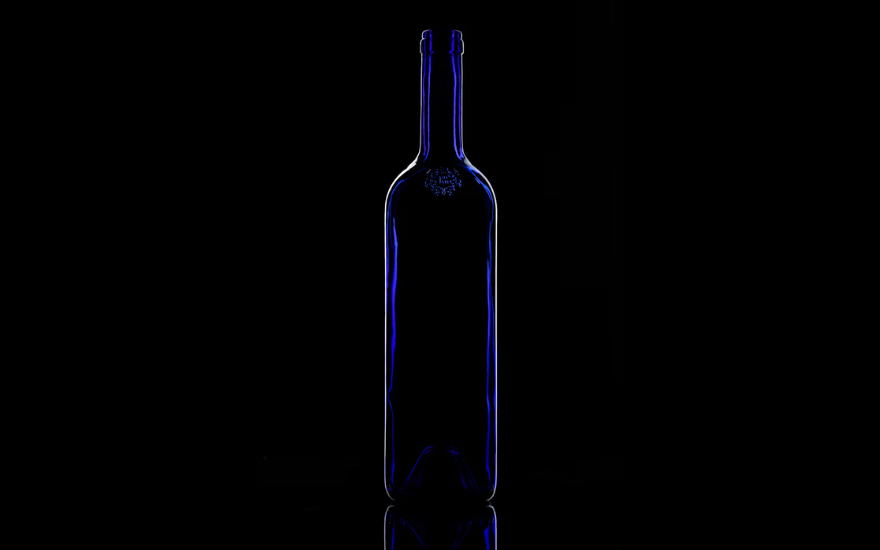
by Keith J. Powell | Apr 24, 2025 | micro
Nicole spins, smiles, bites Mark’s lip, and coaxes him from the circle. They make slow, cautious love on the pile of Gore-Tex coats in the den.
RJ spins, slips Mary Shelley’s Frankenstein from the shelf and reads aloud. He sobs and sobs and sobs. The room fills with his warm tears until they’re all bobbing in his sorrow like apples, and someone shouts at their host to crack a window before they drown.
Jasmine spins, drags Kevin by the hand onto the balcony, and lights a Parliament. They pass the cigarette back and forth, faintly tasting each other on the filter. Under moonlight, they conduct a dispassionate accounting of their respective sexual escapades, ecstasies, and mistakes. “Were you ever in love, though?” Jasmine asks. “Sure,” he says. “Sure.”
Luca spins, peers through birding binoculars at the tomato farmer’s home across the way, watching, waiting for him to leave to tend his crop. When he does, Luca rushes over and delivers a peck on his daughter’s cheek. She burns a brighter red than her father’s harvest, treasures the intimacy, and never tells a soul.
Alice spins, leans forward and finds Zee’s eager mouth, her tongue. They shimmer and vanish in the space between possibilities, the what is and what could be. When their personal reality flickers back in rhythm with now, they’re older. Gray-haired and worn, faded around the edges. Whatever delight they enjoyed lies broken like a porcelain teacup on the floor.
Kevin spins, strips naked, and lays like DaVinci’s Vitruvian Man on dewy grass beneath the majesty of the constellation Cassiopeia. Kevin and Cass finish together in a boom of celestial carnal rapture. Afterward, they make an honest go of it. Kevin stays with her even after her lights dim to a cool white and begin to collapse in on themselves beneath their cosmic gravitational weight. He’s there with her at the heat death of the universe. Kevin and Cass watch finality come rushing at them head-on, hold hands, and kiss.












Recent Comments